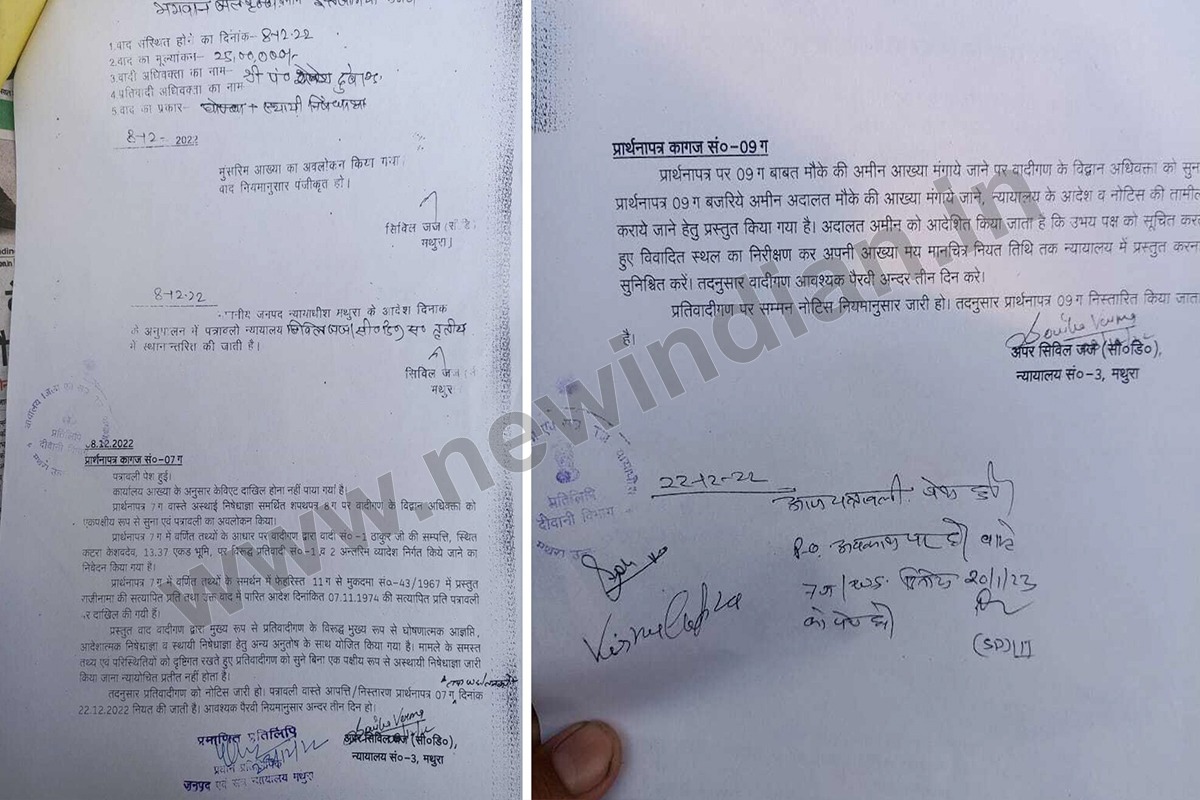In a big win for Hindu groups advocating removal of Shahi Idgah Mosque from Krishna Janmabhoomi temple coplex, a local court in Uttar Pradesh’s Mathura today ordered a survey of the Mosque by the Archaeological Survey of India after January 2.
The report will be submitted after January 20. The court passed the order on a petition filed by Hindu Sena chief Vishnu Gupta. The survey will be done on the lines of to the one done in Varanasi’s Gyanvapi mosque, where a “Shivling” was said to be found during a survey.
A commission appointed by a court in Varanasi to conduct a videographic survey of the Kashi Vishwanath temple-Gyanvapi Mosque complex submitted its report on May 19.
The court has fixed January 20 as the next date for hearing in the matter. In a statement the petitioner said, “In hearing on 22nd December 2022, Mathura district court senior division judge Ms. Sonika Varma has ordered survey of disputed Idgah property for first time in history.”
The Shahi Idgah mosque, Vishnu Gupta’s petition said, was built at the Krishna Janmabhoomi on the orders of Mughal emperor Aurangzeb in 1669-70 in the 13.37-acre premises of Katra Keshav Dev temple.
The lawsuit is one of several such petitions filed by Hindu outfits like Hindu Sena, Akhil Bharatiya Hindu Mahasabha etc demanding the removal of the 17th century Shahi Idgah Masjid built by Mughal Emperor Aurangzeb situated on the east side the Katra Keshav Dev temple – believed to be the birthplace of Lord Krishna.
Reacting to the development AIMIM President Asaduddin Owaisi said, “After Babri Masjid judgement, I’d said that it’ll embolden Sangh Parivar’s mischiefs. Now, Mathura Court has also appointed a commissioner to examine evidence inside Shahi Idgah complex. This is despite Places of Worship Act prohibiting such litigation.”











